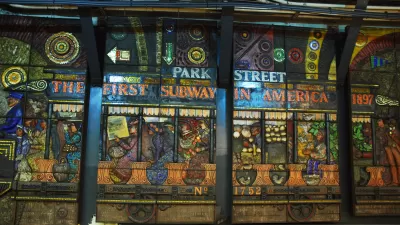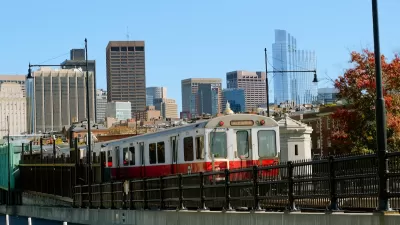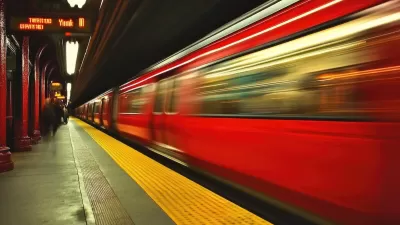Boston is the latest of a growing number of cities that could end the use of cash to may for transit tickets. The change does not come without some concern for riders.
"Massachusetts Bay Transportation Authority officials want to eventually phase out using cash to pay on board its buses and trains, allowing riders to use their cellular phones, credit cards, and new CharlieCards instead," reports Nicole Dungca.
"The change would not take effect for at least two years and would need approval from the authority’s fiscal control board," adds Dungca. "But at Monday’s board meeting, MBTA officials said they plan to aggressively pursue a new fare-collection system that would be more user-friendly and speed up boarding times."
The article includes discussion fo the demographic concerns raised by the proposal (i.e., low-income riders are more likely to use cash), next steps in the planning process, and the example set by other transit systems in adopting similar technologies (e.g., Transport for London and the Chicago Transit Authority). According to Dungca, "[s]uch a fare-collection system would allow the T to easily charge different prices for different times of day, or for different distances traveled by a customer."
FULL STORY: MBTA to phase out cash tickets on buses, trains

Trump Administration Could Effectively End Housing Voucher Program
Federal officials are eyeing major cuts to the Section 8 program that helps millions of low-income households pay rent.

Planetizen Federal Action Tracker
A weekly monitor of how Trump’s orders and actions are impacting planners and planning in America.

Ken Jennings Launches Transit Web Series
The Jeopardy champ wants you to ride public transit.

How Project Connect Would Change ‘The Drag’
A popular — and sometimes deadly — Austin road will exchange car lanes for light rail.

Milwaukee Road to Get Complete Streets Upgrades
The city will reduce vehicle lanes and build a protected multi-use trail including bioswales and other water retention features on its ‘secret highway.’

Tackling Soil Contamination With Nature-Based Solutions
Los Angeles County residents and experts are turning to nature-based methods like bioremediation to address long-standing and fire-exacerbated soil contamination without resorting to costly and disruptive removal.
Urban Design for Planners 1: Software Tools
This six-course series explores essential urban design concepts using open source software and equips planners with the tools they need to participate fully in the urban design process.
Planning for Universal Design
Learn the tools for implementing Universal Design in planning regulations.
Ada County Highway District
Clanton & Associates, Inc.
Jessamine County Fiscal Court
Institute for Housing and Urban Development Studies (IHS)
City of Grandview
Harvard GSD Executive Education
Toledo-Lucas County Plan Commissions
Salt Lake City
NYU Wagner Graduate School of Public Service





























